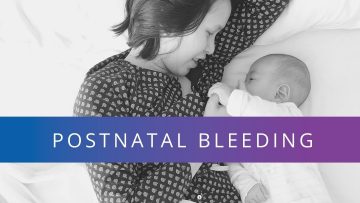Vitamin K is essential to the blood clotting process, which prevents excessive bleeding. Babies have very low levels of vitamin K in their bodies at birth; it does not cross the placenta from the mother, and a newborn has very few of the gut bacteria that produce it in adults. There is little vitamin K in breast milk.
Very occasionally, vitamin K deficiency may result in a bleeding disorder called haemorrhagic disease of the newborn, where the child suffers severe bleeding, such as dangerous bleeding in the brain. To prevent this, it is recommended that newborns are given vitamin K at birth.
They have one injection of vitamin K, a practice that has been standard in Australia for over 30 years. It can also be given orally over three doses, however this regime does not appear to be as effective. Most babies have minimal side effects from the injection.
If you have any questions or concerns about vitamin K, please speak to your obstetrician or paediatrician.


